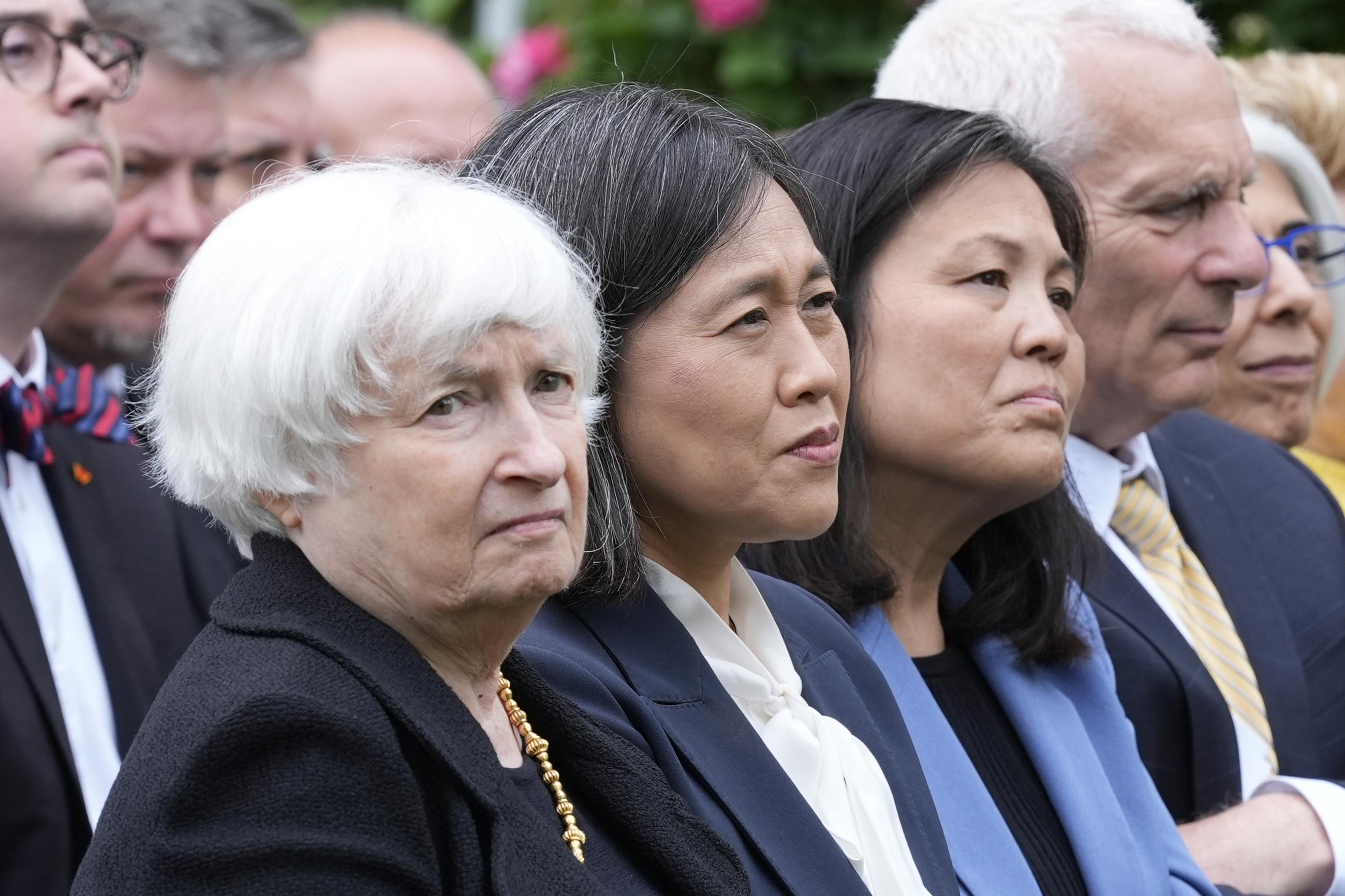President Trump is a longtime tariff supporter. He opposed free trade for decades, even before he pivoted from businessman to politician. He likely does not care what public opinion has to say about his tariff policies; he believes tariffs are good in the long run, and no one can convince him otherwise.
Most Republicans in Congress, however, have to face reelection next year. They care very much what the public thinks. When voters cast their ballots in 2026, the economy is likely to be the whole enchilada. Right now, while a handful of congressional Republicans have joined efforts to bring tariff-policy powers back to the legislative branch—essentially a repudiation of Trump—most are waiting and watching. That’s because the vast majority of Trump voters are waiting and watching.
Plenty of poll headlines will tell you that tariffs are unpopular among the electorate, and they are, with some nuances based on how the question is asked. Broadly speaking, a majority of Americans say they don’t like the idea of tariffs, and they know that tariffs are likely to increase costs, at least in the short term. Tariffs on China have majority support, while tariffs on Canada are far less popular.
Clearly the policies announced last week are on the more extreme end of the tariff opinion continuum. As of publication, there are not yet a lot of polls on those particular proposals, but one early poll from Democratic-aligned Navigator Research shows that people have heard tons of news about tariffs in the last week. Fifty-eight percent of them view tariffs unfavorably. In a new YouGov poll, 50 percent disapprove of Trump’s new tariff plan and 39 percent approve.
But the topline numbers obscure a lot of quirks in Americans’ views, especially on a topic as complex as tariffs. Obviously, partisanship frames how voters view tariffs. Democrats and independents have trended toward more negative views on tariffs over the last few months, meaning that overall views have trended negative.
Republican voters are firmly behind Trump’s plans in every poll; the Navigator numbers show that 58 percent of Republicans have a favorable view of tariffs, compared to 27 percent unfavorable, and 8 in 10 strong Trump supporters view tariffs favorably. Support for tariffs actually increased in the last month among Trump voters.
In the YouGov poll, 73 percent of Republicans approve of the specific tariff plan Trump laid out, and 75 percent say that boosting U.S. manufacturing is a major reason for the tariffs. The Republican portion of the electorate is clearly following Trump’s lead—but it wasn’t always the case that GOP voters’ views on trade depended on who was president.
Gallup trend data shows that Republicans and Democrats alike since the 1990s have increasingly viewed foreign trade as an opportunity for growth, rather than as a threat to the economy. There were no shifts in either party’s views based on who was president. But four years ago, Republicans suddenly shifted. In 2020, 77 percent saw trade as a growth opportunity. In 2021, just 44 percent of Republicans did. Their views reversed immediately upon Trump’s inauguration in January, indicating their trust in Trump to make those opportunities happen.
That means that somewhere between 2016 and 2020, Republican voters’ views on trade merged with Trump’s. That moved the party away from the free-market conservatism of the pre-Trump GOP.
That tension between free markets and Trump’s policy is on display among Republicans in Congress. Seven Republican senators are cosponsoring a bill to mandate congressional approval for tariffs, and some, like Sens. Chuck Grassley, Mitch McConnell, and Rand Paul, have no electoral worries—their objection is ideological. Even Sen. Ted Cruz has criticized tariffs, labeling them a tax but stopping short of cosponsoring the bill.
However, most GOP senators and representatives have either remained silent or support Trump’s tariffs. They are likely watching and waiting for two things—first, whether the tariffs actually go into effect. Trump seems to enjoy the threat of tariffs more than actually implementing them, based on what has happened to this point.
Second, they are probably watching public opinion among Republicans. Most congresspeople have safe seats and don’t have to worry much about Democrats or independents. Those who are not safe are already speaking out against the tariffs. The rest are looking at where the Republican base is and what that might mean for a primary contest. Anger Trump and you get primaried. Support Trump when the base is unhappy, and you will also get primaried.
If the tariffs go into effect and have sufficient negative impacts on GOP voters, stay tuned—this might be the one thing that moves congressional Republicans to stand up to Trump.
Contributing editor Natalie Jackson is a vice president a GQR Research.








